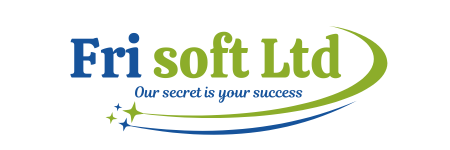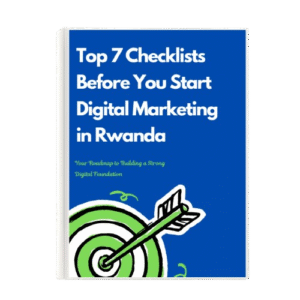Top 5 Digital Marketing Tactics Every Rwandan Business Should Know
In Rwanda’s rapidly evolving market, your next customer is likely browsing Facebook or checking their WhatsApp status right now. With over 4.3 million internet users in Rwanda as of late 2024 (about 30% of the population) digital channels have become key places where people discover new businesses, make buying decisions, and share what they love For hotel owners, restaurant managers, and medium-sized business operators, digital marketing isn’t a luxury – it’s a necessity to stay competitive.
The good news is that digital marketing levels the playing field: even with a small budget, you can reach thousands of local customers online. In fact, with as little as RWF 5,000 (about $5), you can boost a Facebook post and reach people in your target area, which is far cheaper than a traditional billboard.
This beginner-friendly guide will walk you through five practical digital marketing tactics that work in the Rwandan context. From social media and search engines to local tools like WhatsApp Business, these strategies are affordable (many are free!) and effective. Each tactic includes tips and examples to help you get started, even on a limited budget. Let’s dive in!
1. Leverage Social Media Marketing (Facebook & Instagram)
Social media is where Rwandans spend much of their online time. Facebook remains Rwanda’s most-used social platform with over 1.3 million active users, and Instagram’s popularity is quickly growing in urban areas. Your business needs to show up where your audience is hanging out. For a hotel or restaurant, this means showcasing your space and menu visually; for other companies, it means sharing what makes your services special.
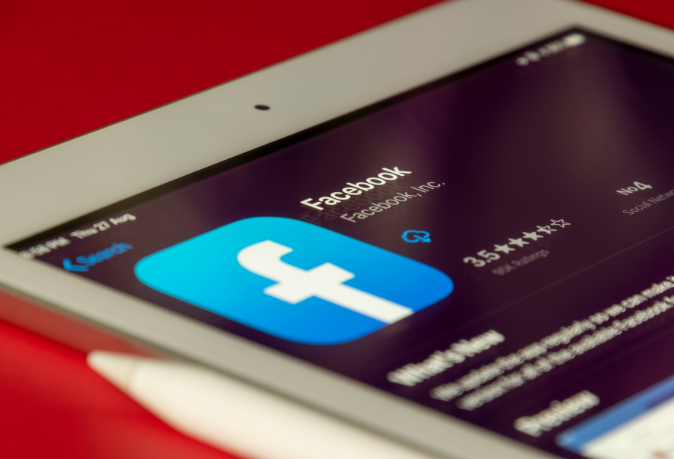
Getting started:
- Create Business Pages: Set up a Facebook Page and an Instagram profile for your business. Use clear photos of your hotel, restaurant, or products, and include your contact info. Post consistently (at least a few times a week) to stay on your followers’ minds.
- Share engaging content: Show behind-the-scenes moments, customer testimonials, or quick video tours. For a restaurant, post mouthwatering photos of popular dishes; for a hotel, highlight your cozy rooms or a video of your lakeside view. Encourage customers to comment or ask questions, and reply promptly to build engagement.
- Use Local Targeted Ads: You can reach a highly specific local audience with a small budget. For example, Facebook’s ad tools let you target people by location, interests, or age.
- Embrace Visuals: In Rwanda, imagery resonates with people who love videos and photos. Take advantage of Instagram’s visual nature. Show your products being used or happy customers at your venue. If you can, explore short videos (Reels or TikTok) for fun behind-the-scenes clips. These can humanize your brand and are more likely to be shared.
- Localize Your Approach: Use Kinyarwanda or a mix of languages if it suits your audience. For instance, a caption in Kinyarwanda that speaks to local culture can create a personal connection. Also consider local hashtags like #MadeInRwanda or #KigaliBusiness to boost visibility in Rwanda’s online community.
.
2. Harness WhatsApp Business for Direct Communication
In Rwanda, almost everyone with a smartphone uses WhatsApp. It’s not just for chats, it’s a powerful free tool for businesses. WhatsApp Business (a free app you can download) is tailored for small businesses to communicate with customers in a personal, immediate way. Many local businesses close sales through WhatsApp chats, especially after being contacted via Facebook or Instagram.. Whether a guest wants to book a table at your restaurant or inquire about a hotel room, WhatsApp lets you respond in real-time and build a friendly rapport.
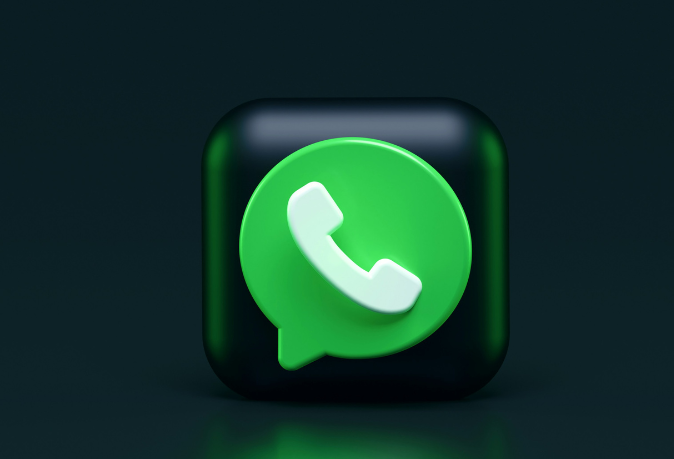
How to use WhatsApp Business:
- Set up a Business Profile: Download the WhatsApp Business app and create a profile with your business name, address, description, hours, and logo. This makes your business look professional and helps customers trust that they’re chatting with the official account.
- Use the Catalog Feature: The app lets you create a product or service catalog right within WhatsApp. For a restaurant, you could list menu items or specials; for a hotel, list room types or packages. This way, customers can see offerings directly in the chat app.
- Auto-replies and Labels: Take advantage of automation features. You can set quick greeting messages (“Muraho! Thank you for contacting ABC Hotel.”) or away messages if it’s after hours. Organize chats with labels (like “New Inquiry”, “Booking Confirmed”, etc.) to keep track of conversations.
- Broadcast Lists (with permission): If you have a list of customers who have opted in, you can send broadcast messages about promotions or events. For instance, a restaurant can announce a weekend discount to its loyal patrons via WhatsApp. This is more intimate than social media posts; it lands right in their chat. (Tip: Avoid spamming; send broadcasts sparingly and only to customers who gave consent.)
- Fast, Personal Service: Treat WhatsApp like a direct hotline. Reply quickly to inquiries; your responsiveness can impress customers. You can even send photos or voice notes for a personal touch (imagine sending a short voice greeting or a quick kitchen video of the day’s special). This level of personal engagement can turn an interested person into a paying customer.
Local tool tip: WhatsApp can also help you close sales seamlessly. For example, if someone orders catering from your restaurant via WhatsApp, you can send them a payment link through a service like PesaPal. PesaPal allows you to share a payment link directly in WhatsApp chats for customers to pay via mobile money or card. This way, even without a fancy e-commerce site, you can finalize orders and get paid online in a secure, convenient way.
3. Optimize Your Presence on Google (SEO & Google My Business)
When someone in Rwanda goes on Google and searches for “best hotel in Musanze” or “top restaurant in Kigali”, you want your business to show up – not your competitor’s. Appearing in search results can bring you a steady stream of customers who are already looking for what you offer. Two key parts of this tactic are Search Engine Optimization (SEO) for your website and Google My Business (now called Google Business Profile) for local search visibility. Both are essential and free to implement, aside from the time you invest.
SEO (Search Engine Optimization) basics: SEO is about making your website (if you have one) rank higher on search engines like Google. Think of it as putting up a 24/7 billboard for your business online; one that shows up whenever someone looks for your product or service. Here’s how to start:
- Relevant Keywords: Identify a few phrases people might search to find businesses like yours. For example, “budget lodge in Kigali”, “best pizza in Remera”, or “affordable conference venue in Rwanda.” Use these phrases naturally on your website in page titles, descriptions, and blog posts. This helps Google understand what your business is about.
- Create Helpful Content: Consider adding a simple blog or articles to your website. If you’re a hotel, you might publish a post like “5 Fun Things to Do in Kigali for First-Time Visitors,” something that provides value and can attract visitors via search. If you’re a tech firm, maybe an FAQ page explaining your services. Valuable content not only educates your customers but also improves your search rankings over time.
- Local SEO Tips: Make sure your site mentions your location (city/neighborhood) so that Google associates you with local searches. Also, list your business on local online directories or forums (like Yellow Pages Rwanda or popular Facebook groups). These backlinks and mentions can improve your visibility on search engines.
Google My Business optimization: This is low-hanging fruit for any Rwandan business, especially hotels and restaurants. Google Business Profile (formerly Google My Business) is a free listing that lets your business appear on Google Maps and local search results. If someone searches “restaurant near me” in Kigali, the results with photos, maps, and reviews are all Google My Business listings. Here’s what to do:
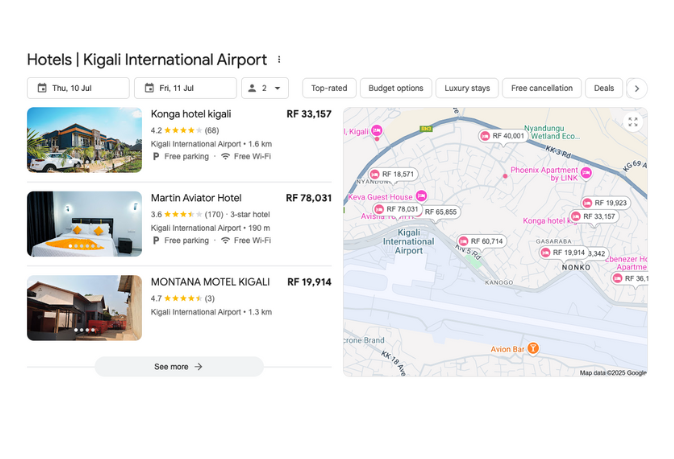
- Claim or Create Your Listing: Go to the Google Business Profile website and claim your business (or add it if it’s not there). Fill in all the details: address, phone, website, hours, and category (e.g., “Hotel”, “Chinese Restaurant”). The more complete, the better.
- Add Photos: Upload high-quality photos of your business. For a hotel, post room photos, the lobby, maybe breakfast setup. For a restaurant, show your best dishes and ambiance. Locations with photos look more appealing and tend to attract more clicks.
- Collect Reviews: Encourage happy customers to leave a Google review. You might gently ask a pleased hotel guest at checkout or a regular restaurant patron to share their experience online. Good reviews improve your reputation and also boost your ranking in local search results. Don’t be discouraged by a rare negative review – respond politely and address the issue. This shows you care about customer feedback.
- Keep Information Updated: If you change operating hours or phone numbers, update your Google listing. Also, use features like Google Posts to share updates or offers (like “Holiday Season Discount – 10% off this week!”). An updated profile signals that your business is active.
4. Start Building an Email Marketing List
Email might sound old-fashioned compared to social media, but it remains one of the highest-return marketing channels even today. The reason is simple: people volunteer their email when they’re interested in your business – it’s a direct line to customers who want to hear from you.
With the rise of internet use in Rwanda, more professionals and consumers check their emails regularly (on their phones or computers). Globally, studies show that for every $1 spent on email marketing, the average return is about $36 – a stunning 3600% ROI.
While that’s a global stat, it underlines email’s power. For a Rwandan business with a limited budget, email is a cheap way to nurture customer relationships and drive repeat business.
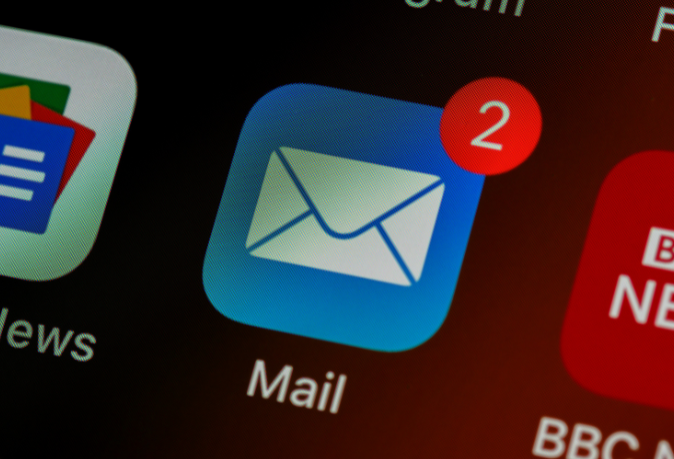
How to get started:
- Collect Emails Ethically: Begin by gathering emails from your customers with their permission. For instance, a hotel can invite guests to leave their email to receive a discount on their next stay or a newsletter about upcoming deals. A restaurant can have a fishbowl for business cards or a simple sign-up sheet at the counter (“Join our VIP list for special offers”). If you have a website, include a sign-up form (“Subscribe for updates and promotions”).
- Use a Free Email Tool: You don’t need fancy software to start; even Gmail can suffice for very small lists (just use BCC for privacy). But it’s better to use free tiers of email marketing tools like Mailchimp or Sendinblue. These tools let you design nice-looking emails, manage your list, and avoid spam issues. They often allow up to a certain number of contacts for free, perfect for beginners.
- Send Valuable Content: Email is great for customer retention. Plan to send an email, maybe once or twice a month. Content ideas: a hotel can send travel tips or announce a seasonal package; a restaurant can share a new menu item or a recipe; a retail business can highlight new arrivals or a holiday sale. Make the emails useful or exclusive, not just a repetitive ad. For example, include a special email-only discount code for subscribers as a “thank you.” This makes people feel they’re in a privileged club and encourages them to stay subscribed.
- Keep it Short & Clear: Rwandan audiences, like anywhere, appreciate clear communication. Write a friendly subject line (in English or Kinyarwanda, or both). Keep the email message brief – a couple of short paragraphs or a few bullet points – since many will read on their phones. Always include a call-to-action (CTA): e.g., “Reserve your table now”, “Book now”, or “Shop the collection”, with a link or phone number.
- Be Consistent but Don’t Spam: Aim for regularity (e.g., a monthly newsletter every first week of the month), so customers expect it. But avoid overloading inboxes – people may unsubscribe if you email too often. Monitor engagement: if certain content gets good responses (opens or replies), do more of that.
5. Engage and Retain Customers with Personal Touches (CRM, SMS & More)
Getting a new customer is great, but keeping that customer and turning them into a loyal fan is even more valuable. Customer engagement and retention tactics ensure that people who buy from you once will come back again and spread the word. In Rwanda’s close-knit communities, building a loyal customer base can lead to powerful word-of-mouth referrals.
Engaging customers can be as simple as sending a thank-you message, running a loyalty program, or using technology to stay organized with follow-ups. This is where tools like CRM systems (Customer Relationship Management) and local mobile marketing channels can help, even for beginners.

Simple ways to boost customer engagement:
Collect Feedback and Respond
Encourage customers to give feedback, maybe via a quick WhatsApp message, a comment on social media, or a feedback card at your store. Respond to feedback positively. Thank people for good feedback, and address any complaints calmly and helpfully. For instance, if a hotel guest mentions a minor issue in a review, reply with an apology and how you’ll fix it. Public responses (on Google or Facebook) show others that you care.
Loyalty Incentives
Consider a basic loyalty program. It doesn’t have to be high-tech – a restaurant can have a simple punch card (“10th coffee is free”), a boutique might offer a small discount after a certain number of purchases, or a hotel can give returning guests a free upgrade if available. These little rewards make customers feel appreciated and give them reason to choose you over competitors.
Stay in Touch (SMS & Calls)
In Rwanda, SMS text messaging is ubiquitous; every mobile phone can get texts. Using an SMS broadcast service like MTN (MTN’s advertising platform) allows you to send promotional texts to targeted groups of mobile users. For example, you could send an SMS blast about a weekend offer to people in Kigali. MTN’s platform lets you target by location or customer segments, reaching even basic phone users without internet. Always include an easy way to opt out, and don’t overdo it; one SMS now and then for big news or deals is enough. Similarly, a friendly phone call to top clients on special occasions (like a hotel calling a corporate client to offer a holiday package) can leave a strong impression.
Use a CRM (Customer Relationship Management) Tool
As your business grows, keeping track of every customer manually gets tough. A CRM system helps store customer details, notes from past interactions, and reminders for follow-ups in one place. For example, Kommo CRM is one user-friendly option that even integrates with WhatsApp; it can capture leads from your WhatsApp chats and organize them in a pipeline. That means if someone messages your business, you can log their info, note what they asked about, and set a reminder to follow up. While adopting a CRM might be a slightly advanced step, even medium-sized Rwandan businesses can benefit from it to ensure no inquiry falls through the cracks. Many CRMs have free tiers or trials; you can start by testing one with your team.
Personalized Communication
Use the data you have to personalize outreach. If you have a customer’s birthday on file (common for hotels), send them a Happy Birthday email or WhatsApp with a small discount. If a client hasn’t purchased in a while, message them with a “we miss you” note and a special offer to bring them back. These personal touches, powered by simple data tracking (even an Excel sheet can do at first), show customers you remember and value them.
Take the Next Step
Digital marketing might feel overwhelming at first, but the key is to start small and be consistent. You don’t need to do everything at once. Pick one or two tactics from the above that make the most sense for your business and implement them this month. Maybe that’s creating a Facebook page and inviting your customers to follow it, or signing up for Google My Business and adding your first photos. Perhaps it’s sending out a simple email announcement about a new menu or promotion to 10 of your customers. Every small step online can make a real difference in reaching people.
The beauty of digital marketing is that much of it is low-cost or even free, and you can measure the impact. Check how many people viewed your Facebook post, see how many clicked your WhatsApp catalog, or track how many calls came from your Google listing. Use those insights to learn what works best for your audience. And don’t be afraid to ask for help or training; there are many resources and local experts in Rwanda who can guide you if needed.
